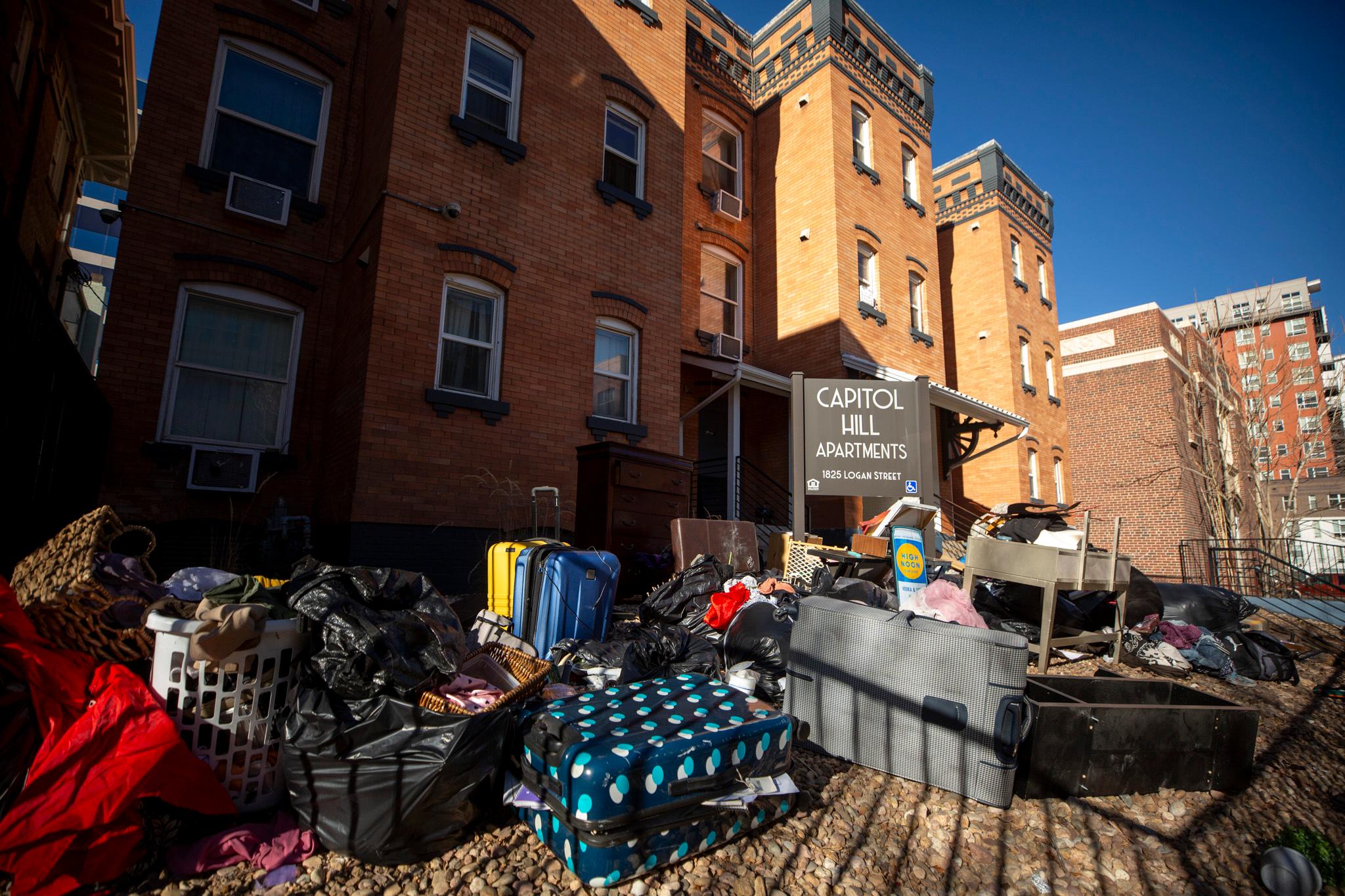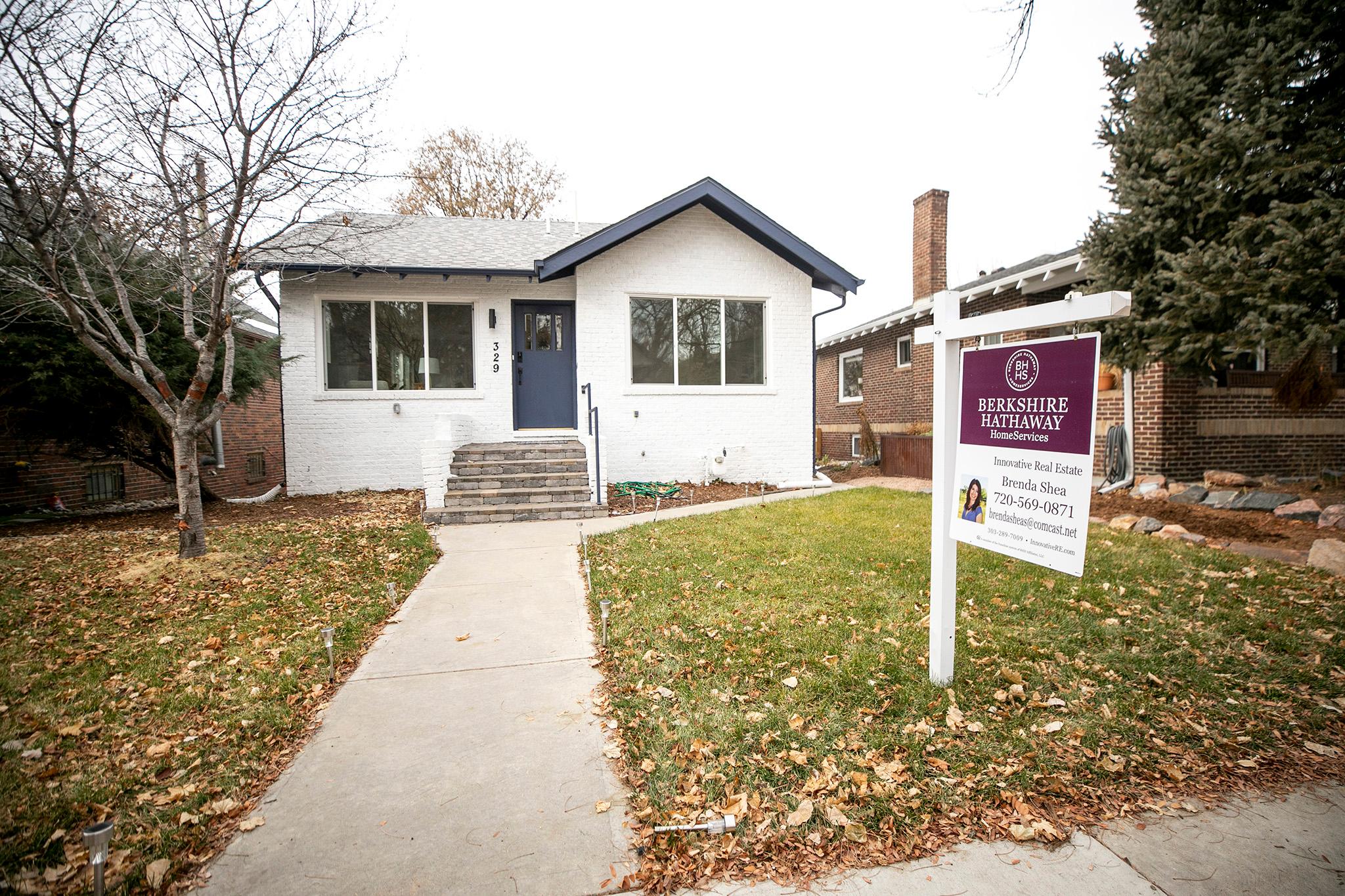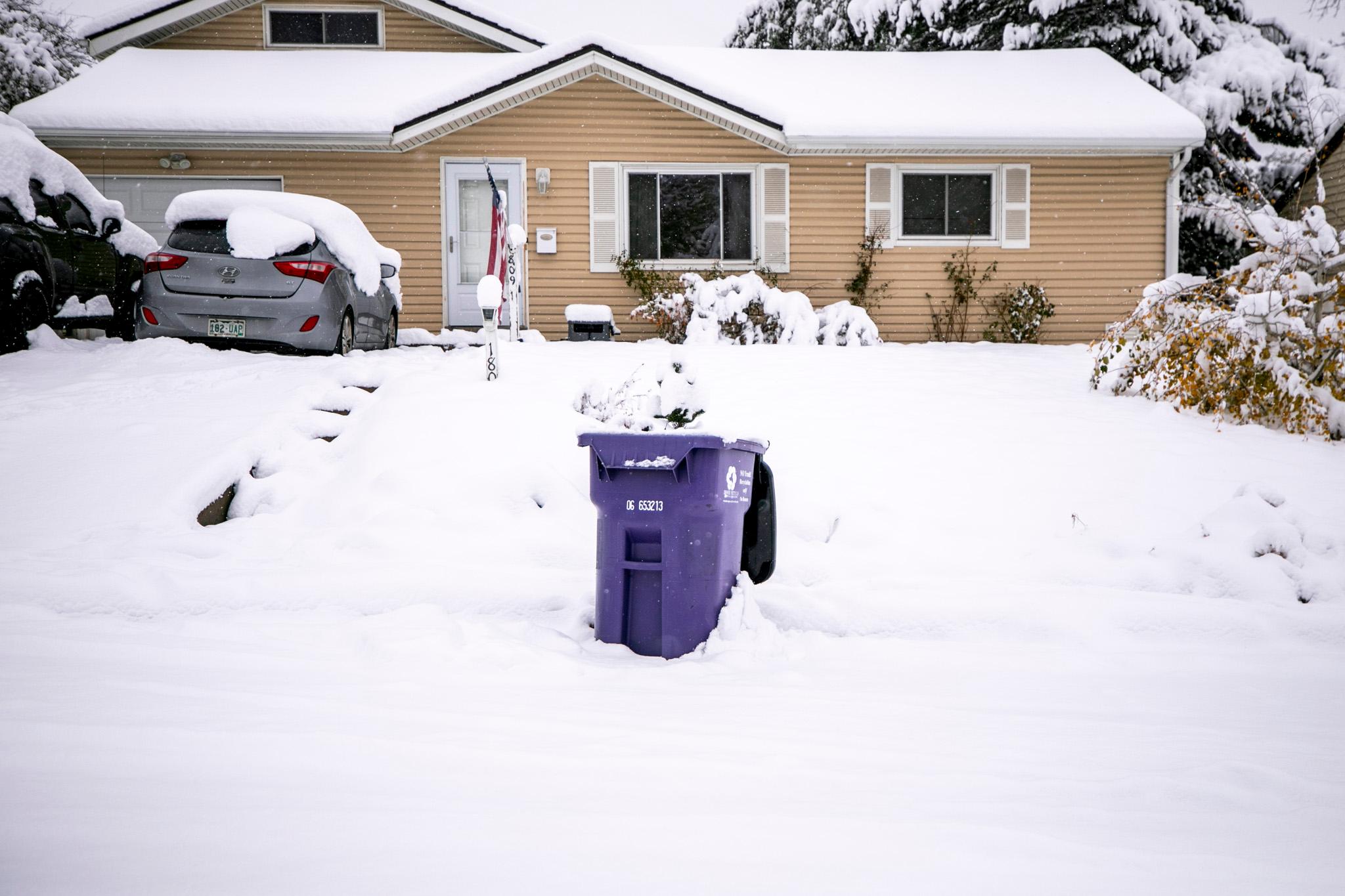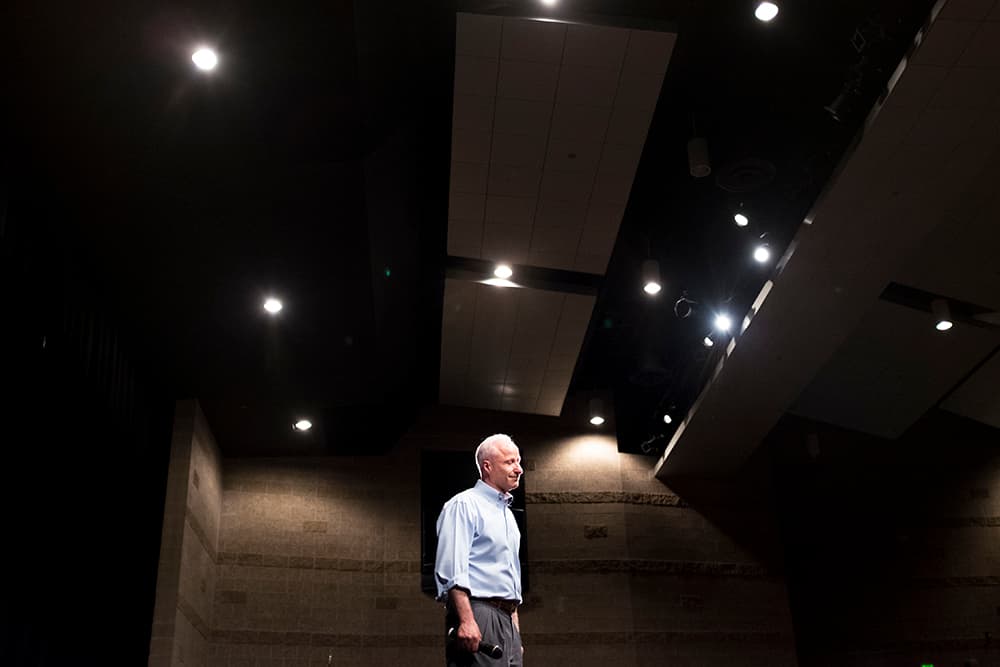
By James Anderson, Associated Press
BRIGHTON — It was Round Two for U.S. Rep. Mike Coffman, who, unlike many congressional Republicans, engaged once again with anxious voters in his suburban Denver district.
Coffman, who hosted a contentious April town hall, held another late Tuesday with several hundred constituents who filled half of a high school gymnasium in the northeastern suburb of Brighton. The event came after the GOP-led Congress failed to act on President Barack Obama's Affordable Care Act.
And it came as Coffman's Colorado GOP colleague, Rep. Ken Buck, declared the Republican Party dead in a Denver Post commentary. Buck said the party has accomplished little in Congress and "no longer has a vision for a better America."
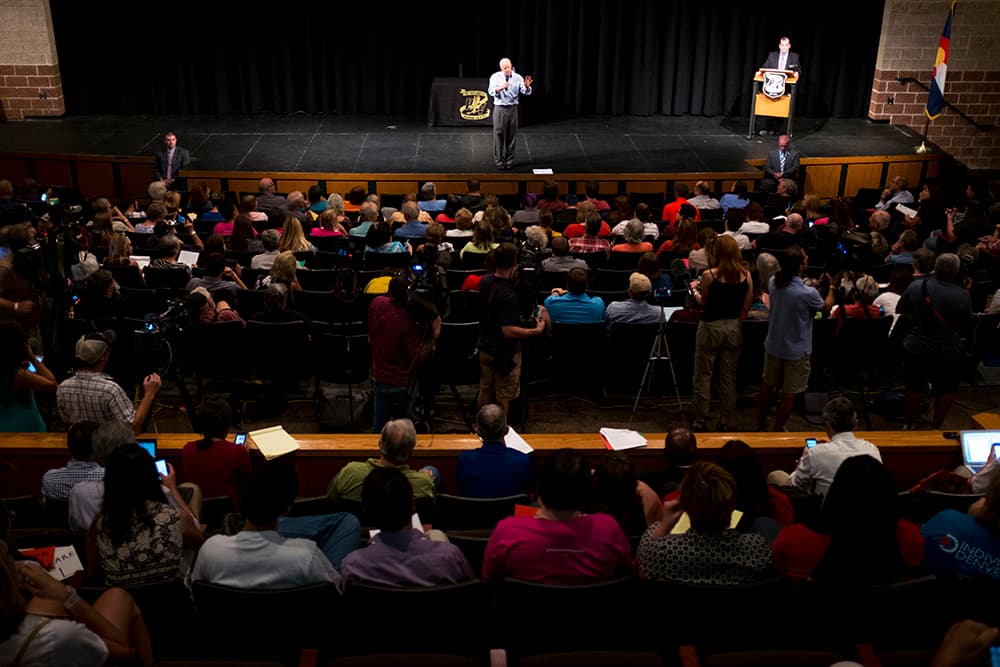
Arizona GOP Sen. Jeff Flake, in a newly released book, "Conscience of a Conservative," echoes that judgment, saying conservatives have abandoned limited-government tenets for their own self interests in a dysfunctional government. Democrats are equally to blame, Flake says.
Coffman ventured that gerrymandered congressional districts that create safe seats are to blame.
"Most districts are so red or so blue. They have no reason to compromise," Coffman said of both party leaders and the vast bulk of members of Congress. His own district, in contrast, remains highly competitive, though Coffman has fended off a succession of Democratic challengers.
He said he planned to file, with other lawmakers he didn't name, a brief in support of a lawsuit before the U.S. Supreme Court challenging the way districts in Wisconsin — and potentially across the country — are drawn.
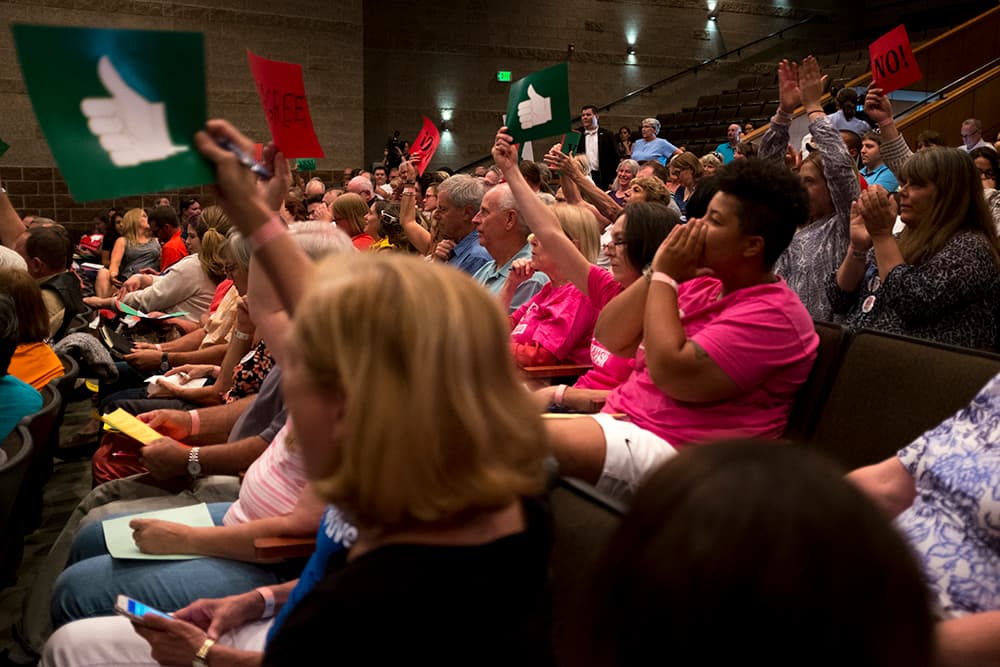
There were hoots and boos for his support of a wall along the Mexican border and his insistence that Obama's health law be repealed. There were cheers for his support for immigrants, especially U.S. military veterans facing deportation, and his efforts to ensure children brought to the U.S. illegally by their parents are able to stay.
Tom Sullivan, whose son Alex was killed in the 2012 Aurora theater shooting, asked what Coffman would do if independent counsel Robert Mueller, investigating possible Russian influence in the 2016 election, were fired. "It would be a disaster," Coffman replied.
Like Coffman's April event, Tuesday's attendees needed tickets and photo IDs to get in. No signs bigger than a sheet of paper were allowed. A lottery determined who asked questions, though everyone with a question Tuesday had the chance to ask it. "No yelling, shouting or disruptive behavior," read the congressman's invitation.
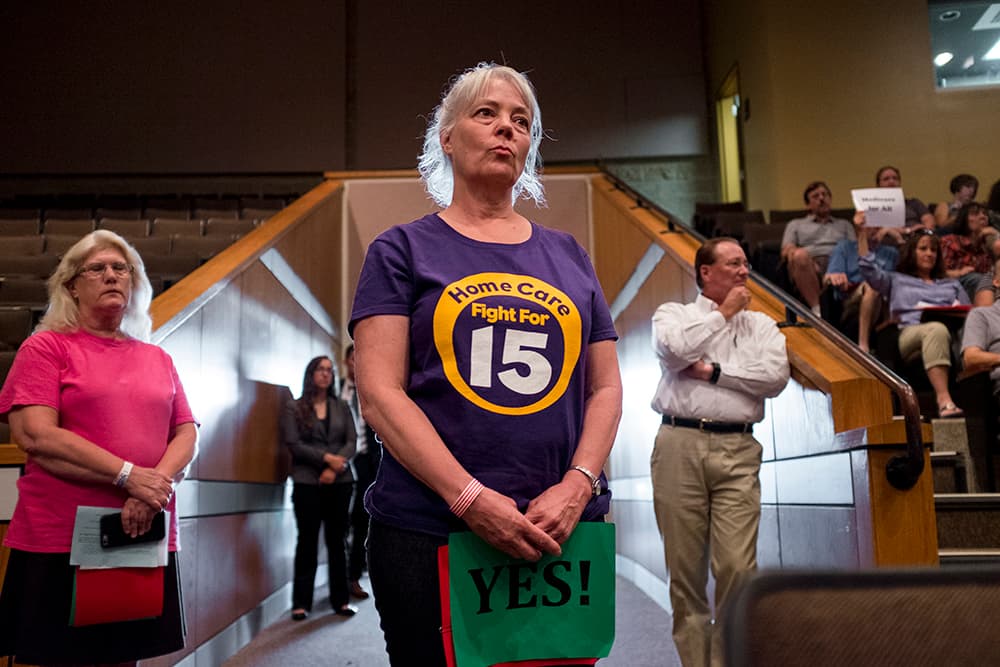
Coffman, first elected in 2008 in a district that now has more Democrats than Republicans, previously avoided town halls, favoring private meetings with constituents or more scripted telephone town halls.
"I appreciate the fact that he came out here. I appreciate the fact that he took an extra half hour to answer questions -- or to say words after people asked questions," said Noah Tonk, who didn't feel that his question was answered but was nonetheless glad he went to the town hall. "People make fun of Congress and complain that they have these month-long recesses, but they don't understand that's necessary for them to get out of Washington and come home to their districts and have events like this and answer to their constituents."
Joe Gormle, a Republican, said he believed that Coffman at times answered questions in a way to not "rile people up and cause too much issue."
"It's very clear that he's conservative, and he has strong convictions on things," said Gormle, who said people need to work on legislation at the state and local level to make a real difference -- something he sees Democrats doing effectively on environmental issues. "This business about rabble-rousing and yelling and screaming and hoo-rah has its place, but it's not effective."
Coffman bucked the House Republican majority by voting against health care legislation that the nonpartisan Congressional Budget Office said would deprive millions of insurance. While favoring replacing the law, he wants to ensure continued coverage for pre-existing conditions.
Coffman also has criticized President Donald Trump's threats to end subsidies to insurance companies. The congressman has opposed efforts to cut Medicaid coverage not only for those who enrolled under the Obama law's Medicaid expansion but for those covered before the law.
Coffman has called for separating debate over cutting health law taxes for the wealthy from changes to the health law and including it in tax reform legislation. He wants a bipartisan effort to support struggling state health insurance markets.
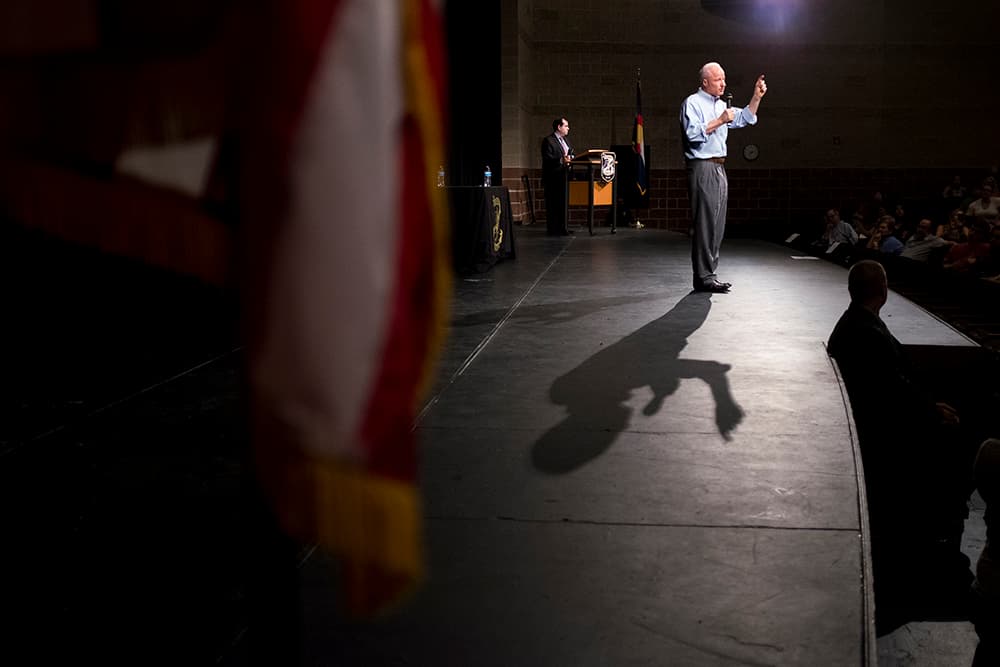
Colorado state auditors say Colorado's own health insurance exchange, which enrolls 178,000 people, may be financially sustainable for the next few years. But participating insurers have proposed drastic premium hikes for individuals next year, and many counties, especially on the Western Slope, have just one insurer in the exchange.
Denverite's Kevin J. Beaty contributed reporting to this story.




